Abstract 11/2018
Table of content
Bryniarska Zofia, Gacek Karolina – Usage of travel planners as a source of passenger information in public transport in Krakow
Choromański Włodzimierz, Iwona Grabarek – Autonomous vehicles in urban agglomerations
Juliusz Engelhardt – Evolution of public rail transport management’s organization in Poland in the years 1990-2018.
Józef Suda, Jacek Lenartowicz – Fleet management of municipal public transport vehicles
Jerzy Lejk, Ireneusz Grunke – Shortening the time of trains sequence in the Warsaw underground
Henryk Zielaskiewicz, Agnieszka Gniadek – Importance of North-South transport corridors for the development of logistics services in Poland
Abstracts
Bryniarska Zofia, Gacek Karolina
Usage of travel planners as a source of passenger information in public transport in Krakow
Abstract: Passenger information plays a very important role in public transport. It encourages decision making and facilitates the use of public transport, increases its attractiveness and quality. The purpose of the article is to present travel planners – mobile and internet applications as a source of passenger information in public transport. The results of the marketing research carried out presents the characteristics and evaluation of travel planners in terms of their suitability for passengers using public transport in Krakow. As a result it was shown to what extent Internet and mobile applications are used, and which information is the most important, the most valuable and helpful.
Key words: passenger transport, urban public transport, passenger information, travel planners, travel planning tools
Choromański Włodzimierz, Iwona Grabarek
Autonomous vehicles in urban agglomerations
Abstract: There is a lively discussion in the world and in Poland regarding the future of transport, including urban and autonomous transport. Technological progress (including: information technology, technologies of new measurement systems, satellite navigation, energy storage, etc.) creates new solutions and will probably revolutionize transport in the near future, including urban transport. This upcoming revolution brings not only technical challenges, but also huge challenges in the area of legislation, the need for changes in the people’s mentality, etc. Authors’ believe that changes in transport in the near future will affect significantly all aspects of our lives, just like a steam engine or Internet. The artificial intelligence and the associated autonomy of transport will play a special role. The problem that from the Polish perspective is also the subject of discussion is the answer to the question: To what extent will Poland be the beneficiary of technology, which along with the world’s progress, will “come to our country”, how much Poland will co-create new technologies? The article is devoted primarily to autonomous urban transport and strives to relate it to the above issues.
Key words: urban transport, electric vehicles, autonomous vehicles
Juliusz Engelhardt
Evolution of public rail transport management’s organization in Poland in the years 1990-2018.
Abstract: The article presents phases of transformation in the public rail transport management‘s organization in Poland in the years 1990-2018. The first phase covers the years 1990 – 2000 and was characterized by full monopolization of passenger rail transport by the PKP – state-owned company. The next stage covers the years between 2001-2008, when the new rules of organization and financing of rail passenger conveyances has been settled and new companies like the PKP Intercity, the PKP Przewozy Regionalne, the PKP WKD, the PKP SKM in the Tricity, have been separated from the PKP. Moreover at this stage the first local self-government railways and a private railway carrier appeared in Poland. The third phase of transformation of public rail transport management covers the years 2009-2018. It is the stage of formation of current model of this particular segment of passenger transport management, which was created as a result of application of legislation on public transport in December 2010. Furthermore, the next self-government rail companies emerged during this stage. Nowadays, the market of passenger railway transport in Poland is operated by 12 carriers.
Key words: public transport, rail transport, railway regional transport, interregional rail transport
Józef Suda, Jacek Lenartowicz
Fleet management of municipal public transport vehicles
Abstract: The article presents methodology of fleet management of urban public transport vehicles. Authors describe sequence of actions starting from the creation of timetables by specialized units of the Warsaw City Hall to the operational activities performed by the carrier. The management process implemented by the largest Polish public transport operator – Miejskie Zakłady Autobusowe Sp. z o.o. in Warsaw is presented as an example. Particular attention is given to the operational activities undertaken by employees of the MZA Transport Management Department (WZP), supervising and managing tasks performed by individual “brigades” on transport/bus lines. These activities are carried out by the employees of the Traffic Center, Expeditions at the line ends and Mobile Patrols. All activities of the WZP’s dispatchers, expeditors and instructors are supported and documented in the MZA Traffic Management System (SZRA).
Key words: urban transport, public transport, fleet of vehicles
Jerzy Lejk, Ireneusz Grunke
Shortening the time of trains sequence in the Warsaw underground
Abstract: The article presents a brief description of the Warsaw Metro and factors influencing the time sequence of trains. Two basic factors influencing the time sequence of trains were distinguished and analysed: devices and technical systems as well as passenger behaviour. The time sequence of trains (frequency of running) is an important factor affecting quality of the service. Its size depends on the elements that can be shaped in the area of technical activities using available solutions of traffic management systems, as well as by influencing passengers behaviour. Changes introduced in both areas resulted in the increase of the lines’ capacity, supply of seats in the wagons and shortening the time of trains sequence. An annual survey of passenger reviews conducted for twelve years confirms that the frequency of running, speed and punctuality of metro trains is very important for passengers. These factors are important for passengers, regardless of time of the day they travel by metro. A test performed in real conditions to check the possibility of carrying out passenger transport with the time of a 2-minute follow-up showed that it is possible. The implementation of permanent trains sequence of 2 minutes requires adjustments in the area of metro line infrastructure and work organisation as well as introduction of an information program for passengers.
Key words: passenger transport, underground, vehicles sequence times
Henryk Zielaskiewicz, Agnieszka Gniadek
Importance of North-South transport corridors for the development of logistics services in Poland
Abstract: Article describes the role of European transport corridors in the development of logistics services in Poland. Particular attention was paid to the Baltic-Adriatic transport corridor allowing for the acceleration of the development of intermodal transport. For coastal regions in the vicinity of the Tri-City, Szczecin and Świnoujście, it is a chance for dynamic development of port transshipments, logistic services and the entire maritime economy, which is of great importance for these regions. For Poland, it provides an opportunity for the development of numerous terminals, logistic centers and warehouse parks as well as logistic services.
Key words: transport corridors, intermodal transport, logistics
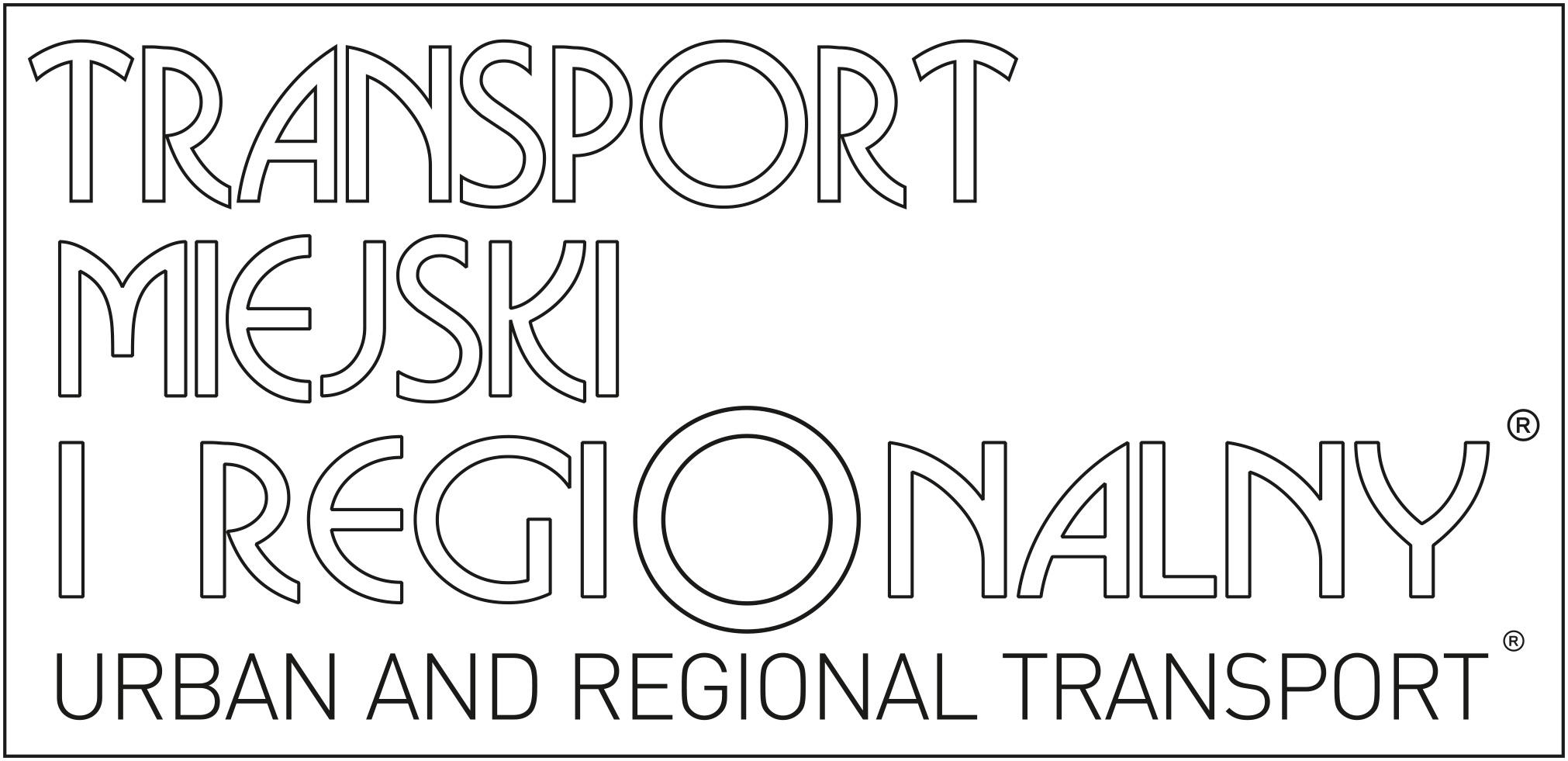
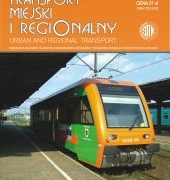 SITK RP
SITK RP 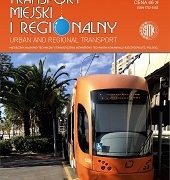
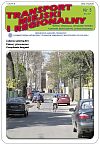 SITK RP
SITK RP 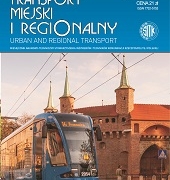 SITK RP
SITK RP 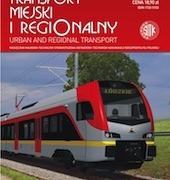 SITK RP
SITK RP 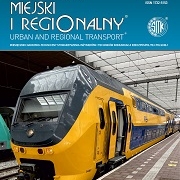 SITK RP
SITK RP 

